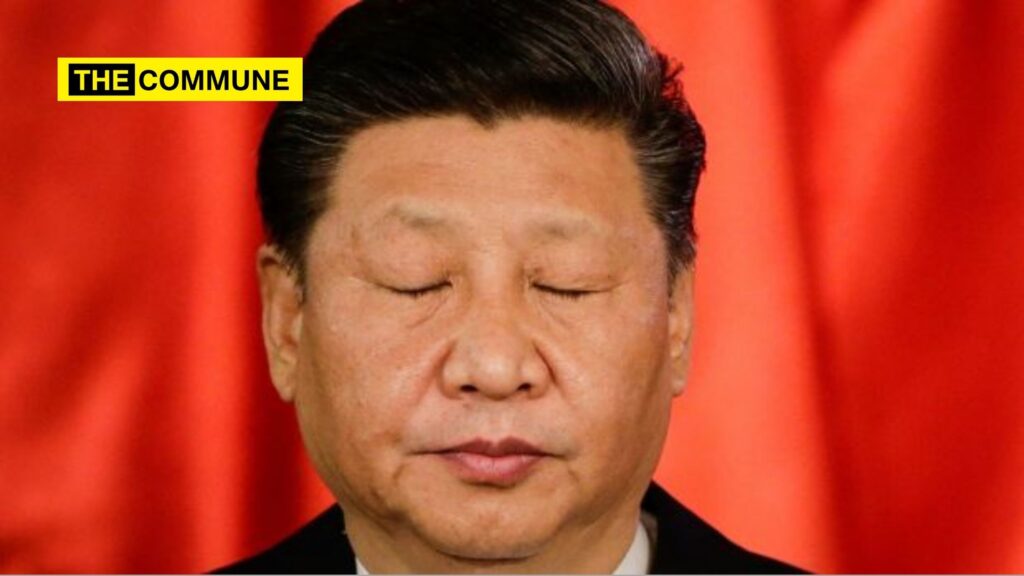General Douglas MacArthur once said “We are not retreating – we are advancing in another direction.” It seems the Chinese are doing the same at the unforgivingly cold Ladakh heights as the overrated People Liberation Army (PLA) starts to disengage and go back to the November 2019 status quo.
For China, this is not a retreat but a disengagement and an honourable one at that, and that is what they want us all to think. China, for centuries, has been a “shame-based culture” and face-saving is a very important social practice.
However, face-saving in China has nothing to do with the culpability of individual guilt or feeling remorseful for their actions, but it is an exercise for self-preservation as long as you don’t get caught. It is not learning from one’s mistake, but it is about surviving punishment.
The PLA suffered more casualties at the Galwan valley clash, yet the Chinese state media reports kept blaming India for the clash that led to the death of 20 Indian soldiers and nearly 50 unconfirmed Chinese soldiers who lost their lives. Fact is the PLA is more like a law enforcement agency used to crush student protests and is not trained to face battle-tested armies.
Fact is, Xi realised that he tried to cross one mountain pass too many, and in the present environment where the Chinese economy is facing a recession and is being held responsible for the global economic woes due to COVID, it is was apparent that China would disengage after a long standoff. The only question was how, when and what concessions and agreements would be made between both nations.
Other reasons for China disengaging from Ladakh is the stand the new administration of US President Joe Biden has taken, which some experts think will be temporary along with the growing cooperation of Quad nations (US, India, Australia and Japan) in the Indo-Pacific region.
Also, the COVID vaccine diplomacy has won India a lot of support globally. China in the last year saw many companies leaving, as India became the global pharmacy. The indigenously developed vaccine is perhaps the most potent weapon in India’s arsenal right now and the proof is Canada and its PM Justin Trudeau.
This disengagement is certainly a great victory for India. However, it must be taken with a pinch of salt because the Chinese are notorious for violating agreements as and when it suits them. The fact of the matter is China simply underestimated the Indian resolve, something it should have learned from the 2016 Doklam crisis when the armies of both nations came very close to a major engagement.
Fear does not make lasting peace and this was made clear by Prime Minister Narendra Modi when he addressed the Indian Armed Force personnel at the Nimmoo Brigade Headquarters in Ladakh and said, “Bravery is a pre-requisite for peace and the weak can never initiate peace”. However, disengagement would not lead India to peace.
For the Chinese leadership, it did not expect that India would mobilize 50,000 troops to the Ladakh border, nor did it expect the Indian political leadership to show such resolve. Lest we forget, former Indian defence minister A K Anthony, when asked why infrastructure near the Chinese border has not been developed, had answered that we did not want the Chinese army to use it, which was a direct indictment of our military capability.
However, the good news is the infrastructure development work started in 2015 in this area is still going on and China has come to a stark realisation that they cannot stop India from developing roads. This is perhaps the most important victory for India.
It is mindboggling that such a thought process could be our defensive strategy against China, and since the Indian military has a history of following orders of its civilian masters unlike Pakistan, China must have thought it could get away with it.
However, China forgot that the Indian political leadership did not budge during the 1999 Kargil war with nuclear-armed Pakistan. India took military action with the options of opening new fronts if necessary and the very thought of multiple fronts forced Pakistan to vacate the heights it had captured.
For Xi Jinping, the Ladakh disengagement is not only a strategic blunder, but more importantly, a political mistake which could be used against him in the future and no amount of face-saving will protect him. In China when the emperor dies, so do his supporters. When Mao died, the Gang of Four was put to trial and many powerful men who thought they were invincible suffered.
This disengagement will also be carefully observed by other South East Asian countries who have a territorial dispute forced upon them by China. This will not be good news for the communist state, which is also facing internal turmoil in Tibet, Inner Mongolia and the Xinjiang province where over one million Uyghur Muslims are in concentration camps.
India must celebrate but it must do so with caution because for Xi, the Chinese troop withdrawal from Ladakh, is a defeat and he will seek revenge in another area, which is most likely to be Sri Lanka and Myanmar, the latter of which just witnessed a military coup.
Xi Jinping is a demagogue who wants to be the next Mao and just like Mao, he puts little premium on peoples’ lives and can’t be trusted. India was caught napping and there is no defence to that; however, lessons have been learnt and hopefully mistakes have been corrected to an extent. But this so-called disengagement is only temporary and until India can force China to agree to a legal boundary there will always be a likelihood of a small, local intense limited conflict in this region.
This article was republished from Heartland Analyst with permission. Read the original article here.

